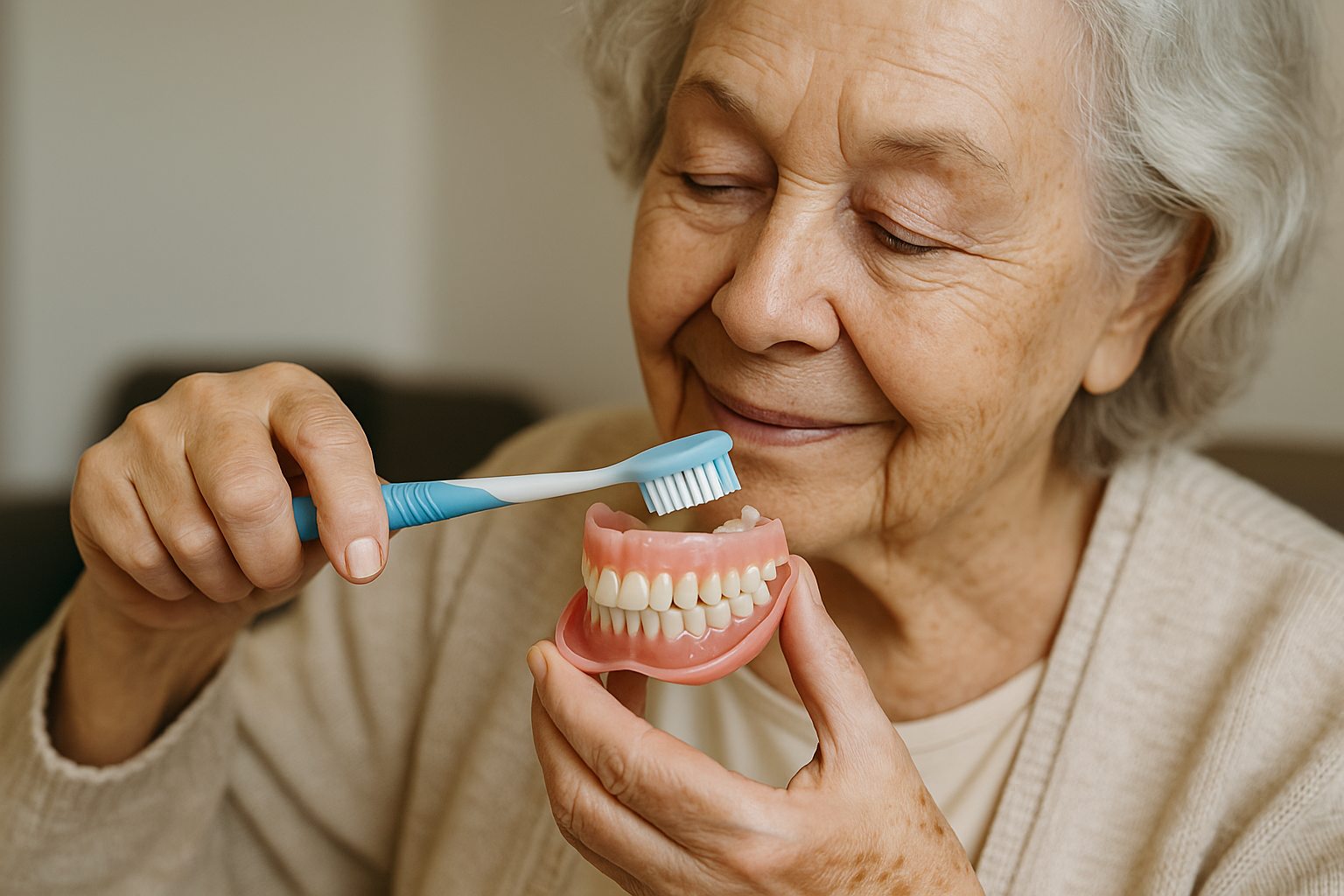

Elderly patients commonly suffer from medical conditions as well as long-standing dental diseases. Not all senior citizens are ignorant of their dental health. But, many choose to delay their dental treatments due to rising costs and the inconvenience of multiple visits. Here are some common issues of senior citizens and dental care for elderly patients:
Contents
Over a long period of time, a variety of factors can cause gum problems in older adults. The buildup of deposits on teeth, use of tobacco, ill-fitting dentures or bridges as well as many medical conditions can be responsible for gum disease. As gum disease progresses, the patient may experience the gums sliding down to reveal the roots of teeth, gaps between the teeth. The jaw bone deteriorates slowly. As a result, the teeth start to move and eventually, the teeth fall out.
Many people also experience flattening of the teeth (attrition) leading to teeth sensitivity, yellowing of the teeth, which is also an age-related change seen in elderly patients. All these age-related changes, though may be inevitable, but still can be taken care of.
Studies show how early loss of teeth can increase the risk of getting dementia and Alzheimer’s disease. With missing teeth, you are unable to chew your food properly the way you used to. This affects your food intake which may cause nutritional and other health problems. This eventually deprives the brain cells of the nutrition causing them to die.
Additionally, with missing teeth you experience problems in speech and difficulty in pronouncing certain words. Patients with extensive tooth loss notice changes in their face structure due to the lack of teeth in the mouth. People with missing teeth tend to look much older than their age. The remaining teeth tend to fall in the spaces, changing the entire look of your face and also hampers the way you smile.
Not all gum disease is a result of old age. Hence, dentists recommend brushing the teeth twice a day and may recommend a special ‘interdental’ toothbrush to elderly patients with gaps between the teeth. Moving teeth are then treated by splinting them together (stabilizing) and saved from extraction.
Wearing dentures can be tedious. A small piece of food stuck in between our teeth can make us so restless, imagine an entire denture in the mouth can make it so uncomfortable. But practice is the key. Loose and ill fitting dentures, too tight dentures, irritations, pricking sensations, redness, tenderness, soreness are some of the common problems experienced by new denture wearers.
Most commonly denture wearers also experience dry mouth. Saliva serves as a natural lubricant and cleanser in the mouth. As we age, the production of saliva in our mouth starts declining. As a result of this, dentures can become loose and ill-fitting over time. Dry mouth can also cause decayed teeth, irritation, mouth sores and infections in denture wearers.
If you wear dentures, you should still brush your gums, tongue, and roof of the mouth before you put in your dentures and after removing them. If you have a dry mouth, drink at least 2 liters of water a day. Generally, you should maintain a good oral hygiene routine and use a mouthwash to prevent bacterial infection. Make sure to have a balanced diet and follow up with regular checkups at the dental office.
Age doesn’t matter, a senior citizen of 60 plus years can also have good and strong teeth. Taking care of teeth at an early age is good for oral health at an older age.
Highlights
Dr. Amrita Jain is a practicing dental surgeon since 4 years. She completed her B.D.S in 2016 and was has been a rank holder throughout her course. She suggests “Holistic dentistry is the best dentistry”. Her treatment line follows a conservative pattern which means saving a tooth is of utmost priority and preventing your teeth from getting decayed rather than curing it with a root canal treatment. She inculcates the same while consulting her patients.Apart from her interest in clinical practice, she has developed interest in research and writing over a period of time. She states “It is my clinical experience that motivates me to write and spread dental awareness”.Her articles are well researched with a combination of technical knowledge and clinical experience.
scanO is an AI ecosystem transforming oral health for patients, dentists, corporates, and insurers worldwide

© 2025 Trismus Healthcare Technologies Pvt Ltd